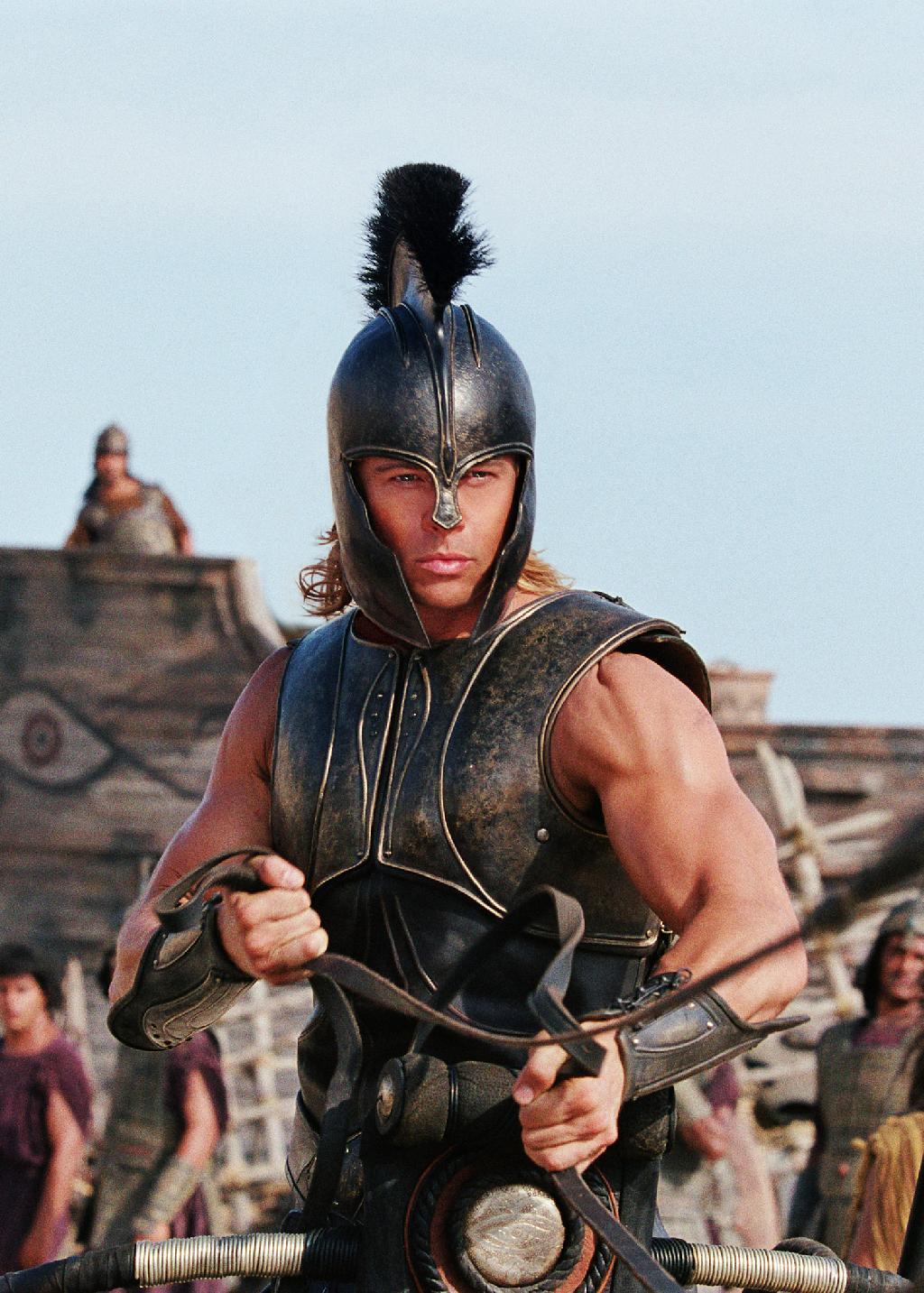Troy Beyer & Prince: Unveiling An Unforgettable Artistic Synergy
The entertainment world is a vibrant tapestry woven with countless threads of collaboration, influence, and shared creative journeys. Among the myriad connections that have shaped music and film, the intersection of two distinct, yet equally impactful, artistic forces—Troy Beyer and Prince—stands as a compelling testament to the unexpected ways talent can converge. While not always in the glaring spotlight, their professional paths did indeed cross, leaving a subtle yet significant mark on the cultural landscape. This article delves into the fascinating story of Troy Beyer and Prince, exploring their individual legacies and the unique moments where their creative universes aligned.
Understanding the full scope of their connection requires appreciating the individual brilliance each brought to their respective crafts. Troy Beyer, a versatile talent spanning acting, directing, and screenwriting, carved out a distinctive niche in Hollywood. Prince, on the other hand, was a singular musical genius, a multi-instrumentalist, songwriter, and performer whose innovative sound redefined genres and influenced generations. Their story is not one of a long-term partnership, but rather a potent, albeit brief, collaboration that highlights the interconnectedness of the arts.
Please note: The "Data Kalimat" provided in the prompt refers exclusively to the ancient city of Troy, its archaeological significance, the Trojan War, and modern cities named Troy (e.g., Troy, Michigan, and Troy University). This information is entirely unrelated to the individuals Troy Beyer and Prince. Therefore, this article will focus solely on Troy Beyer and Prince, drawing on publicly available biographical and professional information about them, as per the primary topic request.
- Brad Pitt Children
- Bob Barker Retired
- Popular Tv Shows In 1962
- Jimmy Fallons Family
- Monty Python Holy Grail Cast
Table of Contents
- The Artistic Realms Converge: Troy Beyer and Prince
- Troy Beyer: A Multifaceted Talent
- Prince Rogers Nelson: A Musical Icon
- Unraveling the Connection: Troy Beyer and Prince
- Beyond the Screen: Professional Dynamics
- The Cultural Impact of Their Shared Work
- Navigating the Intersection of Film and Music
- A Lasting Legacy: The Enduring Influence
The Artistic Realms Converge: Troy Beyer and Prince
At first glance, the names Troy Beyer and Prince might not immediately conjure a direct, prominent collaboration in the minds of many. One is a respected figure known for her versatile contributions to film and television, both in front of and behind the camera. The other is an unparalleled musical visionary whose impact transcended genres and generations. Yet, the vast and interconnected world of entertainment often brings disparate talents together in unexpected ways. Their shared moment in the spotlight, though perhaps understated, speaks volumes about the cross-pollination of creative industries and the serendipitous nature of artistic encounters. This article will meticulously explore their individual journeys and the specific instance that brought Troy Beyer and Prince into a shared creative orbit.
Troy Beyer: A Multifaceted Talent
Troy Beyer has established herself as a significant presence in Hollywood, demonstrating remarkable versatility across various roles. Her career trajectory is a testament to her adaptability and artistic drive, moving seamlessly from acting to screenwriting and directing. This breadth of experience has allowed her to contribute to the industry from multiple vantage points, shaping narratives and performances with a keen eye for detail and character development.
Early Life and Career Beginnings
Born on November 7, 1964, in New York City, Troy Beyer began her journey in the entertainment industry at a young age. Her early career saw her gracing television screens in popular soap operas and prime-time dramas. She gained recognition for her roles as D.C. Tyler in the daytime soap opera "Dynasty" and as Jade Perkins in "Knots Landing," showcasing her ability to embody complex characters and engage audiences. These formative experiences provided her with a deep understanding of the acting craft and the demands of television production. Her film credits during this period also included appearances in movies like "Disorderlies" (1987), where she played a supporting role, further solidifying her presence in the acting world. Beyer's early work laid the groundwork for a career that would evolve beyond just performance, hinting at her broader creative ambitions.
- New Little House On The Prairie
- Sandra Bullock Met Gala
- National Lampoon 80s National Lampoon Beverly Dangelo
- Brian And Mika
- Julie Newmar
Transition to Directing and Screenwriting
As her acting career progressed, Troy Beyer began to explore other facets of filmmaking, demonstrating a natural aptitude for storytelling from a directorial and screenwriting perspective. This transition marked a pivotal point in her career, allowing her to exert greater creative control over projects. Her directorial debut came with the 1997 film "B*A*P*S" (Black American Princesses), a comedy starring Halle Berry and Natalie Desselle. This film showcased Beyer's ability to helm a major motion picture and work with established talent. She continued to hone her skills as a writer and director with films like "Let's Talk About Sex" (1998), which she also wrote and starred in, and "Love Don't Cost a Thing" (2003), a romantic comedy remake. Her work behind the camera often explored themes of relationships, identity, and empowerment, reflecting a distinct voice and vision. This multifaceted approach to her career underscores her dedication to the art of filmmaking in its entirety.
Personal Data: Troy Beyer
| Full Name | Troy Beyer |
| Born | November 7, 1964 |
| Birthplace | New York City, New York, USA |
| Occupation | Actress, Director, Screenwriter |
| Notable Acting Roles | D.C. Tyler (Dynasty), Jade Perkins (Knots Landing), Nisi (B*A*P*S), Girl 6 (Girl 6) |
| Notable Directing Credits | B*A*P*S, Let's Talk About Sex, Love Don't Cost a Thing |
Prince Rogers Nelson: A Musical Icon
Prince Rogers Nelson, known universally as Prince, was a phenomenon. His career, spanning over four decades, was marked by an unparalleled prolificacy, a relentless pursuit of artistic innovation, and an audacious defiance of categorization. He was not merely a musician but a true polymath—a multi-instrumentalist, songwriter, producer, and performer whose influence reverberated across pop, R&B, funk, rock, and soul. His legacy continues to inspire and challenge artists worldwide, cementing his status as one of the most important and influential figures in music history.
The Revolutionary Sound of Prince
Born on June 7, 1958, in Minneapolis, Minnesota, Prince began his musical journey at a very young age, quickly mastering numerous instruments. His debut album, "For You," released in 1978, showcased his prodigious talent, with Prince playing nearly all instruments himself. However, it was with albums like "Dirty Mind" (1980), "1999" (1982), and especially "Purple Rain" (1984) that he achieved global superstardom. "Purple Rain," both an album and a film, became a cultural touchstone, earning him an Academy Award for Best Original Song Score. Prince's music was characterized by its fearless blending of genres, its provocative lyrics, and its audacious exploration of sexuality, spirituality, and identity. He was a master of the live performance, known for his electrifying stage presence, flamboyant costumes, and virtuosic guitar solos. Beyond his own recordings, Prince wrote and produced hits for countless other artists, demonstrating his immense creative output and influence. His unique sound and uncompromising artistic vision made him a true revolutionary, constantly pushing boundaries and redefining what popular music could be. The impact of Prince on music, fashion, and culture is immeasurable, and his work remains a cornerstone of modern artistry.
Personal Data: Prince Rogers Nelson
| Full Name | Prince Rogers Nelson |
| Born | June 7, 1958 |
| Birthplace | Minneapolis, Minnesota, USA |
| Died | April 21, 2016 |
| Occupation | Musician, Singer, Songwriter, Record Producer, Multi-instrumentalist, Actor |
| Notable Albums | Purple Rain, 1999, Sign o' the Times, Dirty Mind, Parade |
| Notable Films | Purple Rain, Under the Cherry Moon, Graffiti Bridge |
| Awards | 7 Grammy Awards, Golden Globe Award, Academy Award, Brit Award, induction into the Rock and Roll Hall of Fame |
Unraveling the Connection: Troy Beyer and Prince
The most significant and publicly verifiable connection between Troy Beyer and Prince lies within the realm of cinema, specifically the 1996 Spike Lee film "Girl 6." This film serves as the primary nexus where their distinct talents converged, albeit in different capacities. Troy Beyer took on a prominent acting role in the movie, portraying the titular character, a young aspiring actress who, after a series of frustrating auditions, takes a job as a phone sex operator. Her performance was central to the film's narrative, showcasing her dramatic range and ability to carry a complex character. Simultaneously, Prince was deeply involved with "Girl 6" through his musical genius. He composed and performed the film's entire soundtrack, which was released as the album "Girl 6." This marked a significant return to film soundtrack work for Prince, following his earlier iconic contributions to his own films like "Purple Rain."
While Troy Beyer and Prince did not directly collaborate in a face-to-face, co-creative capacity on set, their work on "Girl 6" was intrinsically linked. Beyer's performance provided the visual and emotional core of the film, while Prince's music provided its aural landscape, setting the tone, enhancing the mood, and underscoring the narrative beats. The film itself became a unique canvas where their artistic expressions, though separate in their creation, intertwined to form a cohesive cinematic experience. This particular project highlights how the film industry often brings together diverse talents—an actress embodying a character and a musician crafting the sonic identity—to achieve a unified artistic vision. It is through "Girl 6" that the professional paths of Troy Beyer and Prince undeniably intersected, creating a memorable, if indirect, collaboration.
Beyond the Screen: Professional Dynamics
Given the nature of their collaboration on "Girl 6," the relationship between Troy Beyer and Prince was primarily professional, rooted in their respective contributions to the film. There is no public record or widely known information suggesting a romantic or deeply personal relationship between the two. Their interaction would have been mediated through the film's production process, with Spike Lee serving as the central figure connecting the various creative elements. Troy Beyer's work as an actress would have involved her directly with the director and fellow cast members, while Prince's soundtrack creation would have largely been an independent process, albeit guided by Lee's vision for the film's musical atmosphere.
This type of indirect collaboration is common in the film industry, where actors and musicians often contribute to the same project without extensive direct interaction. However, the quality of their individual contributions to "Girl 6" speaks to a mutual level of artistic excellence that converged within the film. Beyer delivered a nuanced performance that anchored the movie, while Prince's soundtrack was lauded for its innovative blend of his classic and unreleased tracks, perfectly complementing the film's themes. Their professional dynamic, therefore, was one of complementary artistry, each excelling in their domain to elevate the overall cinematic product. This instance of Troy Beyer and Prince sharing a creative space, even if indirectly, underscores the collaborative nature of major film productions and the way different forms of artistic genius can coalesce.
The Cultural Impact of Their Shared Work
The film "Girl 6" and its accompanying soundtrack hold a unique place in the cultural landscape, largely due to the collective talents involved, including Troy Beyer and Prince. While the film received mixed critical reviews upon its release, it remains a significant piece in Spike Lee's filmography, exploring themes of identity, exploitation, and the challenges faced by women in the entertainment industry. Troy Beyer's portrayal of the protagonist, Girl 6, was crucial in bringing these complex themes to life, offering a performance that was both vulnerable and resilient. Her work contributed to a nuanced portrayal of a character navigating difficult circumstances.
Prince's soundtrack for "Girl 6" also had its own distinct cultural impact. It served as a compilation of both new and previously unreleased material from his vast archives, offering fans a fresh look into his creative output. The album featured tracks that ranged from his signature funk and R&B to more experimental sounds, reinforcing his reputation as a genre-defying artist. The very presence of Prince's music elevated the film's profile and drew in a wider audience, demonstrating the power of a renowned musician's involvement in a cinematic project. Together, the visual narrative driven by Beyer's performance and the sonic landscape crafted by Prince created a work that, while perhaps not a blockbuster, contributed to the ongoing dialogue about film, music, and their intersection. It stands as a testament to the fact that even indirect collaborations can yield culturally resonant results, showcasing the enduring power of both Troy Beyer and Prince as artists.
Navigating the Intersection of Film and Music
The creative convergence of Troy Beyer and Prince in "Girl 6" is a prime example of the long-standing and often symbiotic relationship between the film and music industries. Throughout history, these two artistic forms have frequently intertwined, with musicians composing scores for films, actors performing musical roles, and films serving as vehicles for musical narratives. This interdisciplinary dynamic enriches both mediums, offering new avenues for artistic expression and audience engagement.
Prince, with his own ventures into filmmaking (e.g., "Purple Rain," "Under the Cherry Moon," "Graffiti Bridge"), understood this intersection intimately. His ability to craft entire sonic worlds for visual narratives made him a sought-after collaborator for directors like Spike Lee. Similarly, Troy Beyer's career, which evolved from acting to directing and screenwriting, demonstrates a comprehensive understanding of how visual storytelling is constructed. Her experience as an actress gave her unique insight into performance, while her directorial work allowed her to shape the overall artistic vision, including the integration of music. The "Girl 6" project highlights how a director can act as a conduit, bringing together diverse talents—an actress like Troy Beyer to embody the story and a musical maestro like Prince to define its emotional rhythm—to create a unified artistic statement. This synergy underscores the importance of cross-pollination between different creative fields, leading to innovative and memorable works that transcend the boundaries of individual art forms.
A Lasting Legacy: The Enduring Influence
The individual legacies of Troy Beyer and Prince continue to resonate within their respective fields and beyond. Troy Beyer, through her consistent work as an actress, director, and screenwriter, has contributed significantly to the representation of diverse stories and voices in film. Her directorial efforts, in particular, have provided opportunities for nuanced portrayals and narratives that might otherwise be overlooked. She represents a generation of artists who have navigated the complexities of Hollywood, demonstrating resilience and a commitment to storytelling. Her filmography, both in front of and behind the camera, serves as a valuable part of contemporary cinematic history.
Prince's legacy, tragically cut short in 2016, is monumental. His vast catalog of music continues to inspire and challenge, his influence evident in countless contemporary artists across genres. He broke down barriers, both musically and culturally, advocating for artistic freedom and control. His impact extends far beyond his discography, encompassing his fashion, his stage presence, and his unwavering commitment to his unique vision. The memory of Prince, the innovator and icon, remains indelible.
While their direct collaboration was limited to a single, albeit significant, film project, the fact that Troy Beyer and Prince shared a creative space on "Girl 6" serves as a reminder of the intricate web of connections that define the entertainment industry. It highlights how artists, even those with seemingly disparate paths, can contribute to a singular vision, leaving behind a collective body of work that continues to be explored and appreciated. Their shared moment, however brief, underscores the enduring power of art to bring diverse talents together, creating something greater than the sum of its parts.
Conclusion
In conclusion, the story of Troy Beyer and Prince is a compelling illustration of how two distinct artistic powerhouses can converge to create a memorable cultural artifact. While Troy Beyer carved out a notable career as a versatile actress, director, and screenwriter, and Prince solidified his place as one of music's most revolutionary and influential figures, their professional paths intersected most notably through Spike Lee's 1996 film "Girl 6." Troy Beyer's central performance and Prince's iconic soundtrack for the film showcased their individual brilliance, contributing to a unified cinematic vision. This collaboration, though indirect, underscores the rich tapestry of the entertainment industry, where diverse talents frequently intertwine to produce works of lasting significance.
Their shared contribution to "Girl 6" serves as a testament to the symbiotic relationship between film and music, demonstrating how an actress's compelling portrayal can be amplified by a musician's masterful score. The legacies of both Troy Beyer and Prince continue to inspire, reminding us of the profound impact artists can have, individually and collectively, on culture and creativity. We encourage you to revisit "Girl 6" to experience this unique synergy firsthand, or explore the extensive filmography of Troy Beyer and the unparalleled discography of Prince. What are your thoughts on their work, or other unexpected artistic collaborations? Share your insights in the comments below!
- Popular Tv Shows In 1962
- Lea Thompson Daughter
- Artistic Pursuits
- Prince Andrew And Sarah Ferguson
- Jenna Fischer Photos

Where Was Troy And What Happened To It? - WorldAtlas

Troy Movie Wallpapers - Top Free Troy Movie Backgrounds - WallpaperAccess

Troy - Troy Photo (9718454) - Fanpop